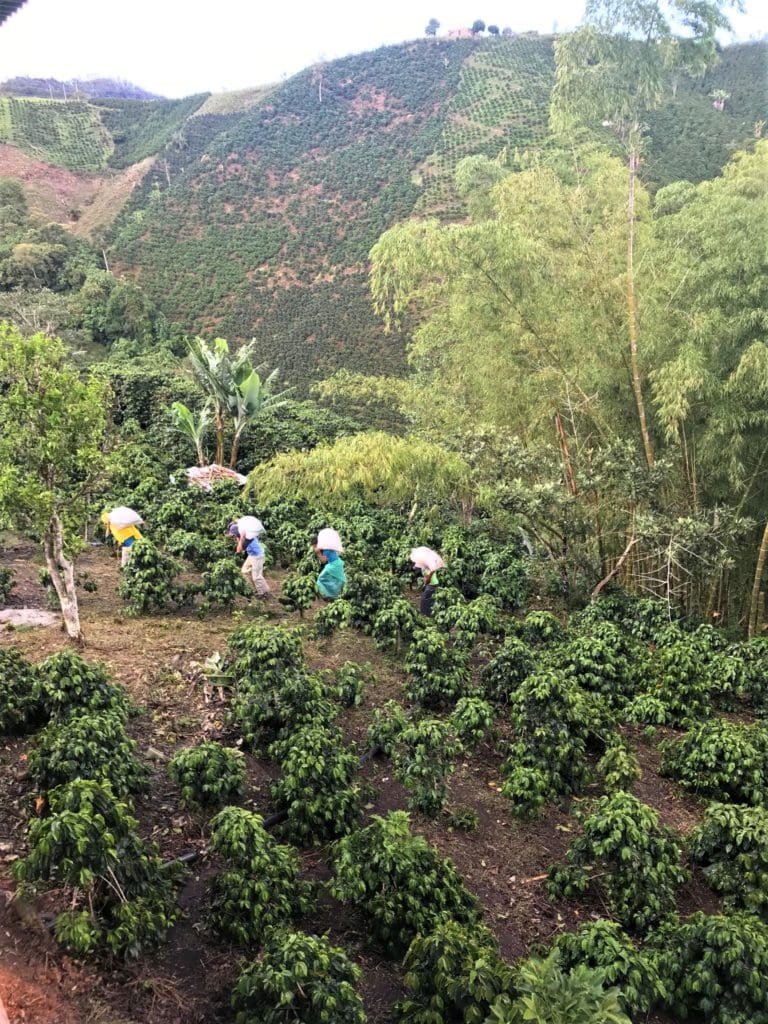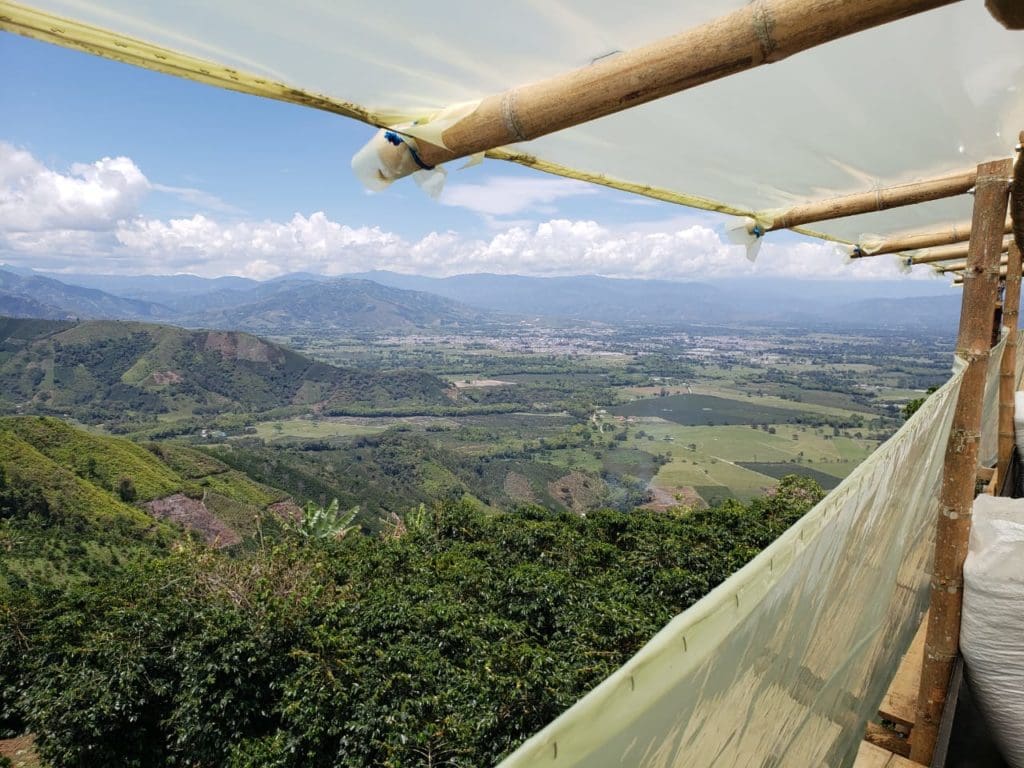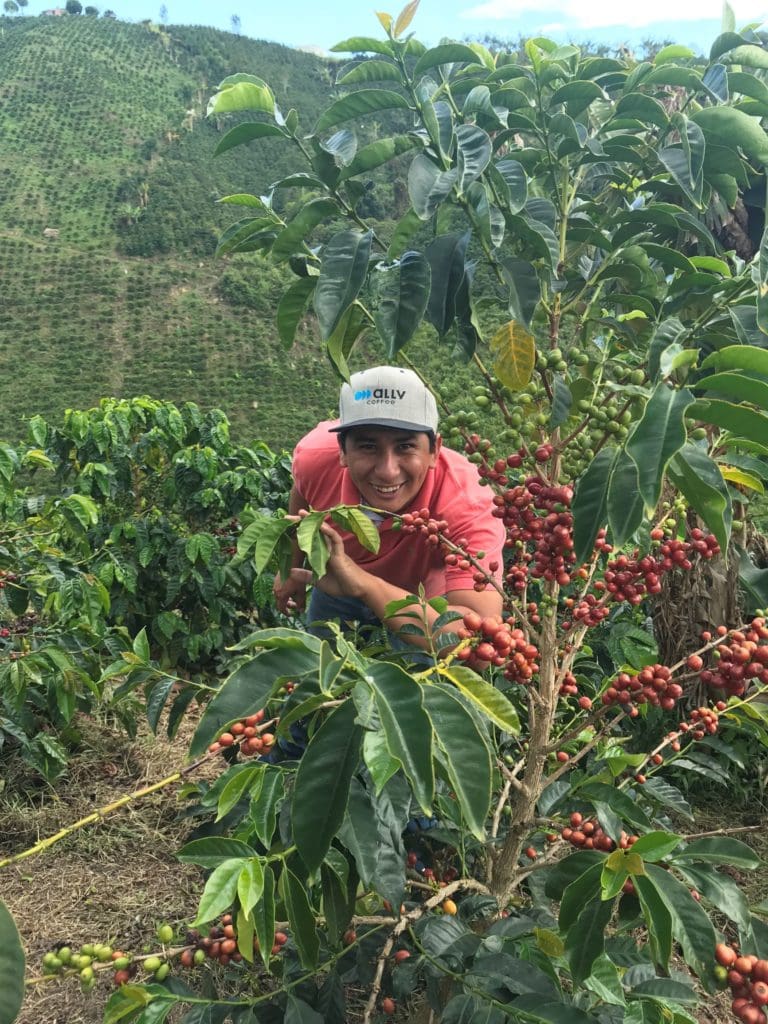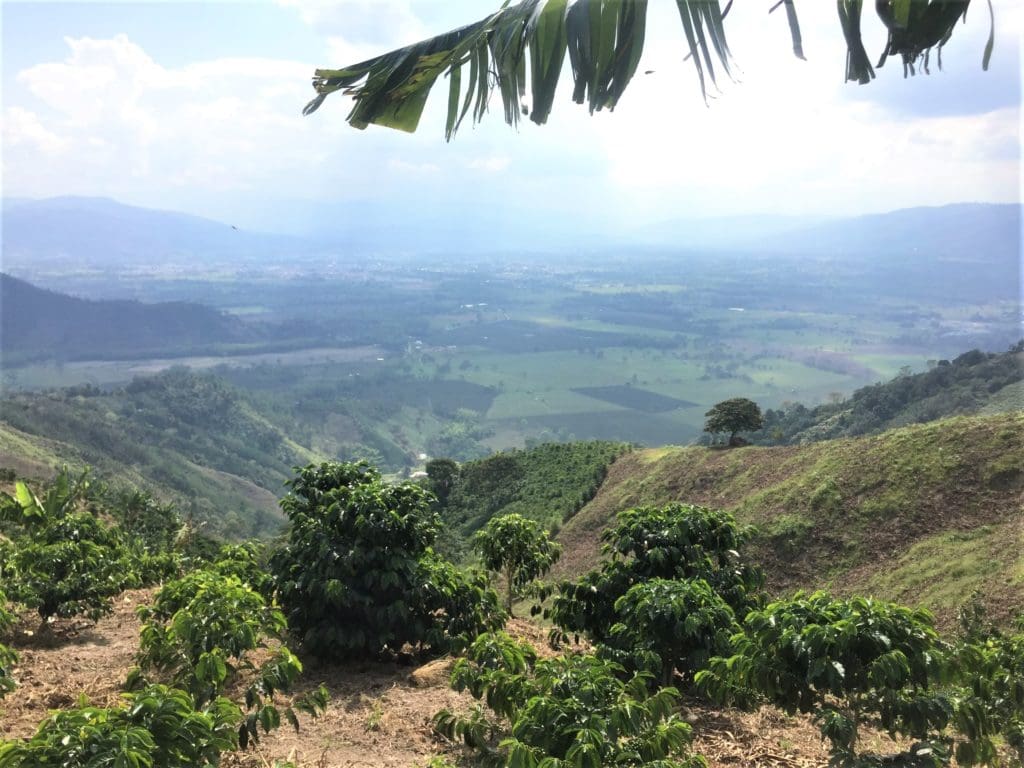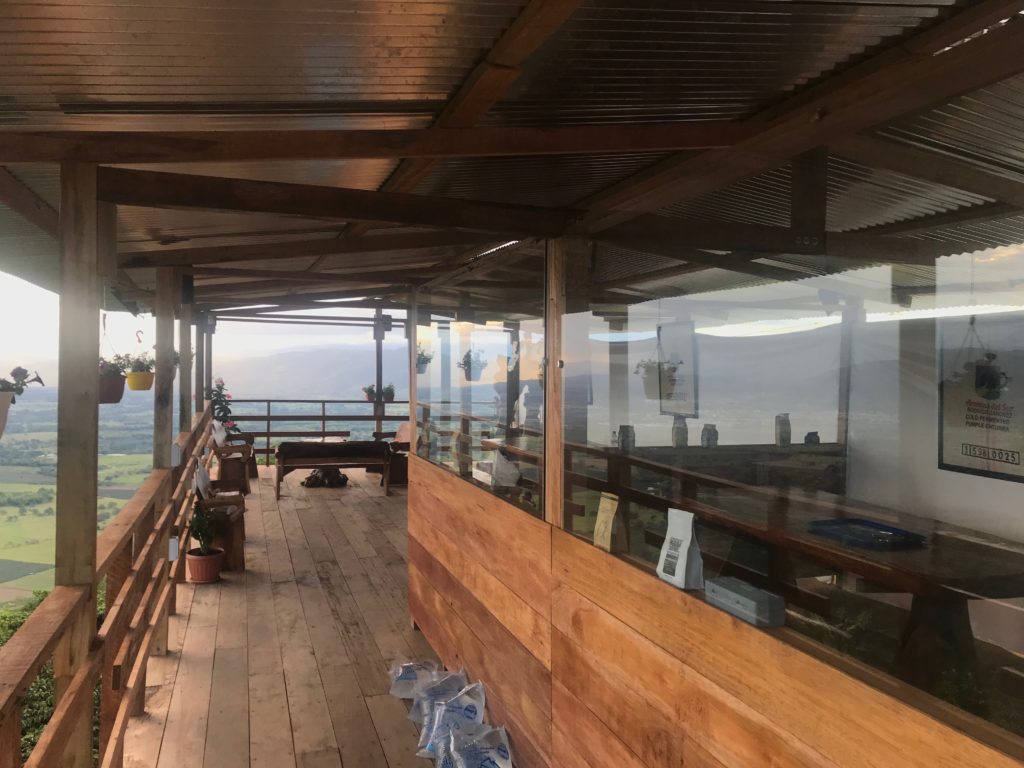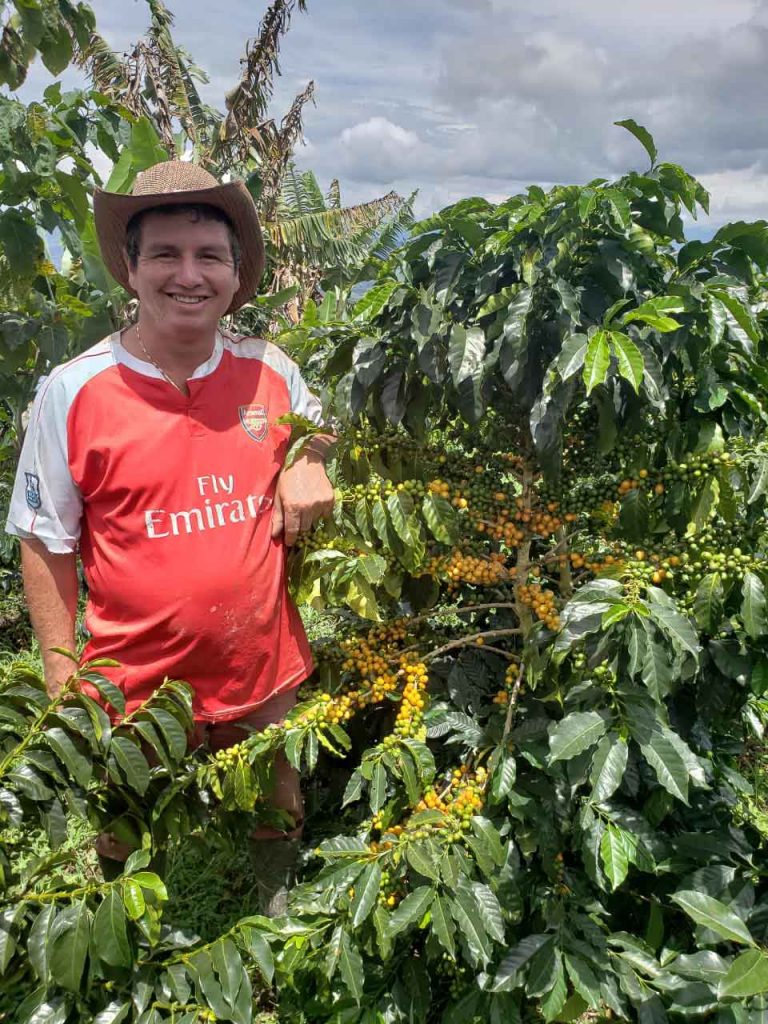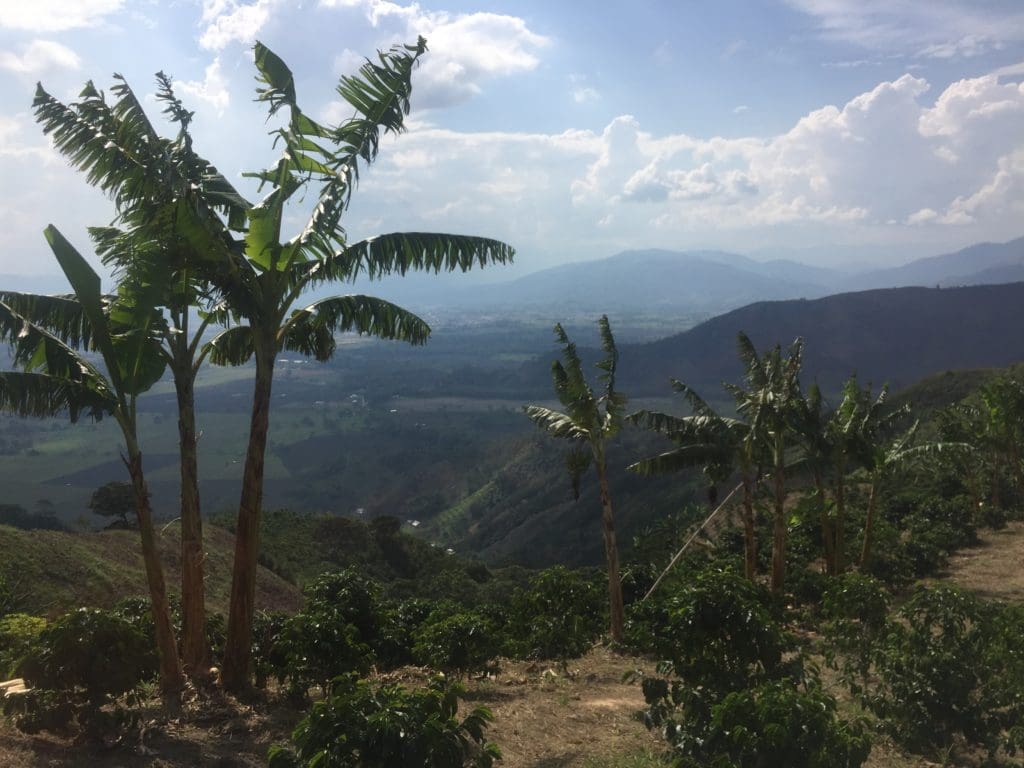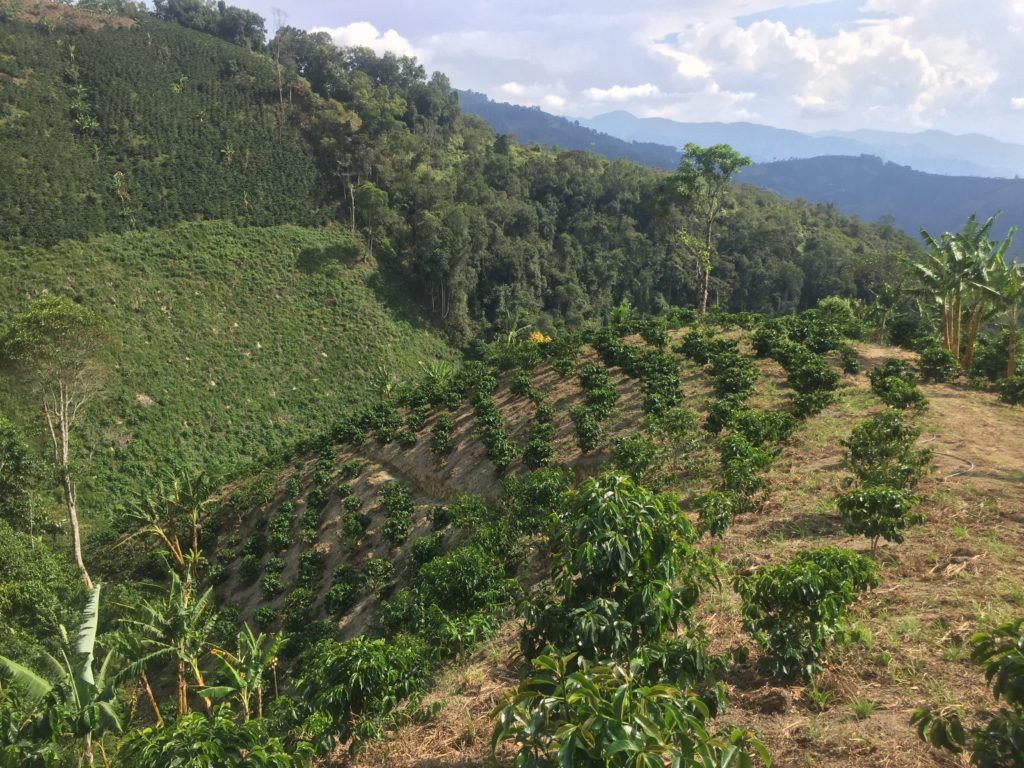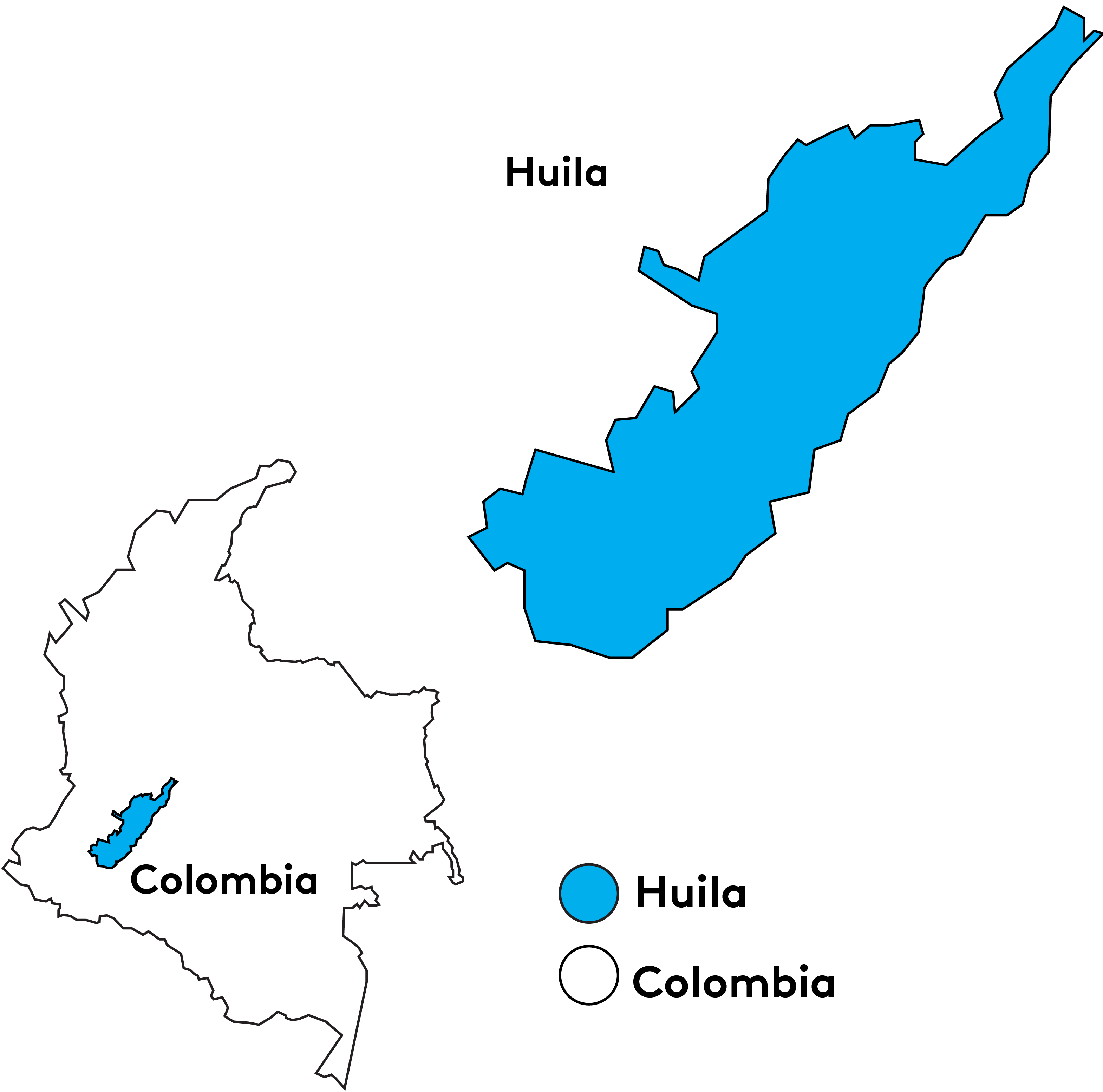Finca La Loma is located in Vereda Agua Negra in the Pitalito municipality of Huila. The farm has 12 hectares planted with many varieties, including Caturra, Variedad Colombia, Pink Bourbon, Pacamara, Laurina, and Geisha. The mill on the farm includes a depulper and tanks for dry fermentation. Producers Rodrigo Sanchez Valencia and Claudia Samboni have been cultivating coffee on La Loma since 2011.
In 2017, Rodrigo and his team at Aromas del Sur—the parent company for La Loma, El Progreso, and Monteblanco farms and the Aromas del Sur dry mill—constructed a cupping lab on La Loma to facilitate sample roasting, crop evaluation, and sourcing at origin. The lab overlooks the farm and the valley of Pitalito, with coffee trees and other crops dotting the rolling landscape.
This lot is a blend of the many varieties grown on Finca La Loma. This coffee captures the essence of what makes La Loma special, from its hilltop location to the attentive care taken by Rodrigo and his team during all stages of cultivation, processing, and preparation for export.
Cherries are measured for degrees Brix as they are harvested. Based on sugar content indicated, the team at Aromas del Sur designates which processing method is appropriate. Coffees with 24-27 degrees Brix are typically processed as washed coffees, and cherries with 22-25 degrees Brix were specially selected for this lot. First, floaters were removed and coffee was depulped the same day it was harvested then left to ferment for 28-32 hours. This lot dried in the sun for five days then on raised beds in the shade for 25-28 days until it reached 10.5-11% humidity. Finally, coffee was dry milled and prepped for export at the Aromas del Sur facility in Pitalito.
Read more about coffee at Monteblanco and new Aromas del Sur processing innovations.
